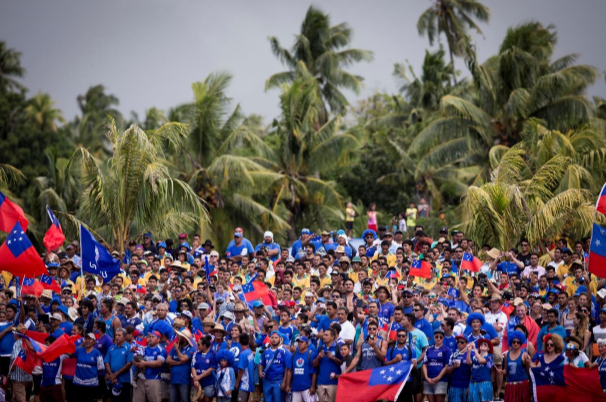The competition supports the bigger picture objective of reshaping the global men’s competition
calendar and combined with the proposed two-division global competition model, renewed
investment in regional competitions and cross-border club structures, the new competition
landscape will secure a positive and sustainable future of international rugby for participating
unions, providing a platform for accelerated growth.
The rebranded Pacific Nations Cup, which will be played in the southern hemisphere release window
of August and September, will feature two pools of three teams – a North America/Japan pool and a
Pacific Islands pool with each union hosting matches.
A finals series involving all teams will take place each year, where the annual champions will be
confirmed. Japan and USA will host the finals series in alternate years, starting with Japan in 2024.
Backed by significant World Rugby investment and union support, each union will play a minimum
of three additional matches a year via the new competition, delivering important certainty for each
union in order to optimize commercial and performance returns, including ticket and sponsorship
revenue and domestic broadcast.
Lakapi Samoa Chief Executive Officer, Faleomavaega Vincent Fepuleai said: “These are positive
significant changes that will benefit our Manu Samoa for more annual international fixtures. The
certainty from World Rugby to greater commercial opportunities to gain and sustain our small
Unions into the future is progressive and exciting. Combined with the proposed new two-division
global competition model from 2026 and cross-over fixtures, these changes will ensure greater
number of matches in between and heading into Rugby World Cups. The global Calendar with the
two-division competition is anticipated in 2026 will provide an opportunity for us to access on merit”
World Rugby Chief Executive Officer, Alan Gilpin added: “We are on the side of growth and this
tournament is a key pillar in a wider strategy. Combined with the proposed new two-division global
competition model from 2026 and cross-over fixtures against high performance unions, performance
unions could be playing an unprecedented number of annual fixtures from 2026.”
Manu Samoa Head Coach, Vaovasamanaia Seilala Mapusua added: “I am excited at the potential of
the expanded Pacific Nations Cup as it provides important high quality fixture certainty to grow and
develop Manu Samoa.”
“This means we will have more test matches and more time together as a team which we have lacked
in the past. This new environment will enable us to keep growing and developing as we look towards
Rugby World Cup 2027 in Australia.”

